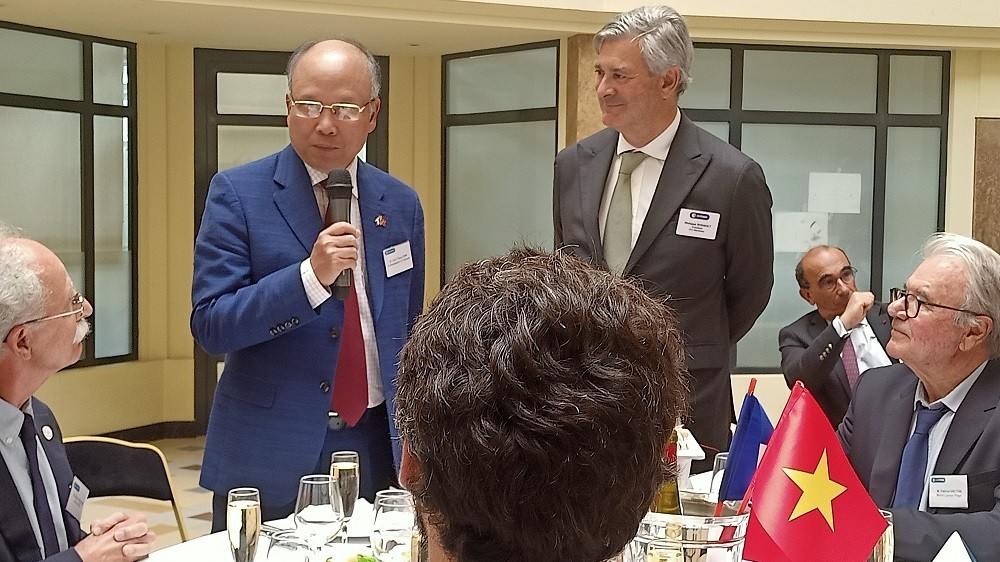
Vietnam Sea &Island Week to raise awareness of maritime economy, marine biodiversity
Latest
 |
| Cat Ba Islands view from above. (Photo: VNA) |
There will be a forum on the sustainable development of Vietnam’s sea-based economy by 2030, alongside a series of seminars and workshops.
The Vietnam Sea and Island Week 2022 focuses on the theme “sustainable development of a sea-based economy in association with preservation of biodiversity and marine ecosystems” this year, aiming to address challenges and limitations in developing the marine economy in Vietnam.
The week-long event provides an opportunity to promote the Party and State’s policies and international laws on marine issues, Vietnam’s legitimate rights and benefits at sea, and the significance of sea, islands, ocean and marine resources to humans; and enhance the sustainable development of a sea-based economy.
It is also expected to help translate the strategy for the sustainable development of Vietnam’s sea-based economy by 2030, with a vision towards 2045, into reality.
According to the Blue Economy Scenarios for Vietnam report, Vietnam's sea is a humid tropical sea with diverse and productive ecosystems. The country’s marine area has about 20 ecosystems, including marine ecosystems around coastal islands, offshore islands, especially water areas, and deep seabed areas.
 |
| Tra Phu Mangrove in An Giang is an eco-tourism destination. (Photo: VNA) |
Mangroves, coral reefs, seagrass and lagoons are considered typical ecosystems because they are the most biodiverse, have the highest conservation value and ecological-economic significance. Coastal landscapes and islands, together with natural ecosystems with high biodiversity, are also the basis of the development of economic sectors such as tourism, fisheries and renewable energy.
In addition, marine ecosystems also contain important functions such as carbon sequestration (seagrass and mangroves), climate regulation and disaster prevention.









